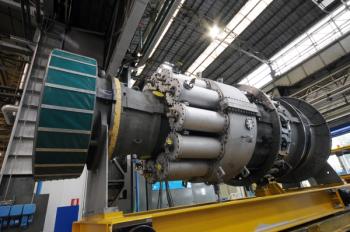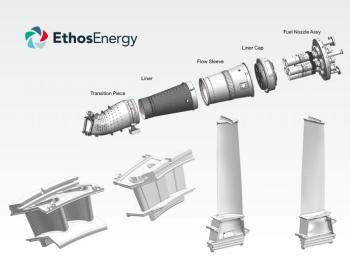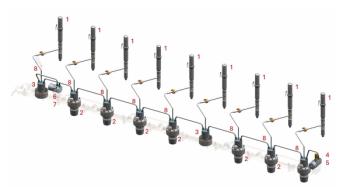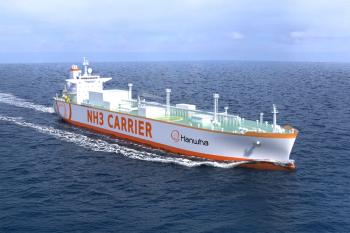
Rolls-Royce Secures Emergency Power Contract for Kuwait International Airport
Key Takeaways
- Rolls-Royce will supply seven mtu Series 4000 DS 3600 diesel generators for Kuwait International Airport's Terminal 2, designed for extreme temperatures up to 55 °C.
- Kuwait International Airport's expansion under Kuwait Vision 2035 aims to increase capacity to 50 million passengers annually, making it a modern Gulf aviation hub.
The mtu Series 4000 DS 3600 diesel generators will operate reliably under extreme climatic conditions, designed for ambient temperatures up to 55 °C.
The Directorate General for Civil Aviation, in cooperation with the Ministry of Public Works, awarded Rolls-Royce a contract to deliver seven mtu backup-power generators at the
The diesel gensets can operate reliably under extreme climatic conditions, specifically designed for ambient temperatures of up to 55 °C. Limak is acting as the project’s primary developer and genset delivery is scheduled for early 2026, followed by commissioning, testing, and handover. “We are proud that our products ensure the stable operation of critical infrastructure at the airport—even in this region with its extreme environmental conditions,” said Salim El Banna, Country Sales Manager UAE, Bahrain, Iraq & Kuwait, Rolls-Royce Power Systems.
The Kuwait International Airport is undergoing significant expansion with the new Terminal 2 construction. Upon completion, the airport will be among the most modern aviation hubs in the Gulf region with an initial capacity of 25 million passengers per year—scalable up to 50 million—under the country’s national development strategy: Kuwait Vision 2035.
Currently, Rolls-Royce has deployed over 85,000 mtu emergency power systems in critical infrastructure globally, including airports, data centers, hospitals, industrial plants, and energy suppliers. The systems leverage both diesel and gas gensets, in addition to uninterruptible power systems, to ensure continuous power under extreme conditions. At major international airports, such as Frankfurt, Dubai, Madrid, Prague, Palma, and Hurghada, mtu gensets and combined heat-and-power systems have been operating reliably and powering terminals, baggage systems, and control centers.
Fast-Start Gensets
In early October 2025, Rolls-Royce announced that it will launch an updated
Generating continuous power is desirable when the existing grid’s power is not sufficient to support a new data center coming online, and, with an independent gas power plant, operators may come online faster with increased energy security and revenue. Currently, the 50- and 60-Hz models are available with a fast-start capability of 120 seconds and maintain long lifecycles—up to 84,000 hours before overhaul.
Collaboration with Microsoft
In September 2025, Rolls-Royce Power Systems and Microsoft published a position paper evaluating
Compared to fossil diesel, HVO can reduce lifecycle CO2 emissions by up to 90%, adhering to Singapore’s Green Data Center Roadmap and 2050 net-zero targets. It is a high-quality, bio-based paraffinic fuel produced via waste, residual fats, and oils, applicable to current diesel generator infrastructure without technical modifications. HVO-approved systems offer an immediately deployable and decarbonized backup power generator.
Newsletter
Power your knowledge with the latest in turbine technology, engineering advances, and energy solutions—subscribe to Turbomachinery International today.




